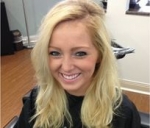Christine L wrote:My brother had surgery. His ENT did not like to do coblation because it would "grow back" (?).
He actually reduced the turbinates with cutting instruments and corrected the septum at the same time. He slept through the procedure but recovered the same week and went back to work. That has been probably 8 years ago and he is still very pleased.
Why do you have to have it done three times? Why did they not do surgery and have it done for good?
Just a couple of remarks, first. It wasn't coblation, it was a slightly different radiofrequency-based tissue constriction. The difference is in the thermal impact - this time, there was no smell of burned tissue.
The advantages of this procedure over surgical removal are multiple: it is minimally invasive and very focused, which means, there is little disruption in your life. Like I said, I had no effects of it and could have just taken an hour of my day from work to do the procedure (not days off). But most importantly, there is no risk of actually making things worse as there is with cutting away tissue. Your brother was lucky and/or maybe went from very bad to less bad, or from not-so-bad to very good, and had no basis for comparison. Maybe he had no choice for the surgery (you mentioned he also had the septum done). My septum is badly deviated but I can manage.
The biggest problem with cutting the turbinates is that you either have to remove the top portion, which is the one that moisturizes and warms up the air you breathe, or you have to cut it open and remove tissue from underneath. With the radiofrequency turbinate reduction with outfracture, you're only shrinking the underlying fatty tissue while making minimal damage to the turbinate surface (a 1 mm hole). I have heard of many people who had surgical reduction of turbinates and are complaining about dryness of the nose, and some even experience the "empty nose syndrome".
My procedure has practically no risk and no impact on my life. The reasons why I had to do it three times is because, first, I wanted to be conservative and asked the surgeon to take it easy on the reduction, and second, because one can't help the tissue grow with time (like getting fat ). If your brother hasn't had the need to redo it, it's most probably because he had it way open and the growth in mean time hasn't blocked a significant part of the airways; maybe he didn't have it that bad to begin with. There is also the part about costs - depending on your insurance, a surgery may cost you a lot more than this procedure. Mine would cover both, but I'd rather take an hour of my time, pay nothing (100% covered) and reap the benefits I know I can expect, without the risks and trauma.
McSleepy
ResMed AirCurve 10 VAuto; Puritan-Bennett Breeze nasal pillow mask; healthy, active, middle-aged man; tall, athletic build; stomach sleeper; on CPAP since 2003; lives @ 5000 ft; surgically-corrected deviated septum and turbinates; regular nasal washes








